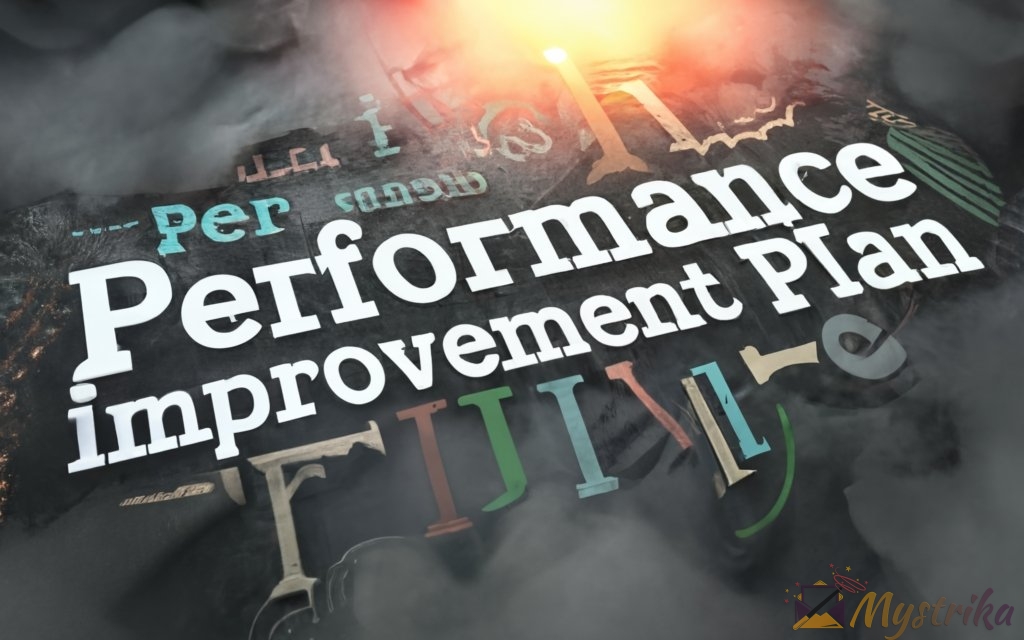Being put on a Performance Improvement Plan (PIP) can feel like a kiss of death for sales reps. But don’t just resign yourself to defeat yet. PIPs present an opportunity to fix deficient skills and avoid losing your job, if you navigate them strategically.
This comprehensive guide explores what sales PIPs are, why reps get them, how to create effective plans, and top tips for completing them successfully or recovering after completion. Arm yourself with knowledge to professionally handle sales PIPs and continue thriving in your career.
What is a Performance Improvement Plan (PIP)?
A performance improvement plan, commonly referred to as a PIP, is a formal document that outlines areas for improvement for an employee who is not meeting expectations in their job role. Its purpose is to give underperforming employees a chance to improve and meet standards – rather than being immediately terminated.
Definition of a PIP
Specifically, a PIP does the following:
- Identifies subpar work performance and behaviors
- Sets clear objectives and goals to improve
- Provides a timeline for achieving goals (usually 30-90 days)
- Outlines specific training/resources to be offered
- Defines consequences for failure to improve
It is usually the final step taken before termination proceedings begin for chronically underperforming employees. Some companies use PIPs frequently, while others reserve them only for the most serious cases.
So in essence, a PIP gives employees an ultimatum – shape up or ship out. It sends a clear message that their performance must improve within the allotted timeframe or their job is on the line.
When Are PIPs Used in Sales?
In sales roles specifically, PIPs are implemented when reps consistently demonstrate unacceptable performance such as:
- Missing sales quotas repeatedly
- Submitting poorly formatted reports or presentations
- Failing to follow established sales processes and protocols
- Displaying unprofessional conduct with prospects
- Having very low prospect-to-customer conversion rates
Usually a sales rep would first receive verbal warnings and coaching from their manager before being placed on a formal PIP. This gives them a chance to course correct. But if their metrics do not improve over 1-2 quarters, a PIP may be next.
For instance, if a sales rep missed their Q1 quota by 15%, they may receive counseling from their manager to improve in Q2. If they still miss their Q2 number by 10%, a PIP would be warranted to avoid a third quarter of subpar results.
Overview of the PIP Process
So what does the PIP process actually look like for a sales rep? Here are the key steps:
Performance evaluation – The sales manager will thoroughly review the rep’s recent deal totals, pipeline metrics, call volume, prospect interactions, and any other relevant productivity data. This quantifies how significantly the rep is underperforming expectations.
PIP meeting – The manager holds a formal meeting with the sales rep to go over the PIP document, provide performance details, outline expected improvements, discuss resources to be provided, and set deadlines for progress.
Check-ins and feedback – Throughout the PIP, the manager frequently checks in with the rep to provide coaching, monitor activity, answer questions, and offer feedback on progress. This two-way dialogue is critical.
Follow-up PIP review – Near the end of the PIP timeline, the sales manager formally reviews if the rep has achieved the outlined goals and improved their deficiencies.
Next steps – If goals are met, the rep typically continues employment, often with ongoing monitoring. If not, they are usually terminated. Severance packages may be offered depending on circumstances.
So in short, a PIP gives underperforming sales reps a chance to turn things around. But it also sends a clear message – improve your numbers or start looking for a new job. It is truly the “final warning” of the sales world.

Reasons Sales Reps Get Put on a PIP
While there are many factors that can contribute to a sales rep receiving a Performance Improvement Plan (PIP), there are four main performance issues that typically lead to a PIP: consistently missing quotas, submitting poor quality work, failing to follow sales processes, and behavioral problems.
Missing Quotas
One of the most common reasons a sales rep will end up on a PIP is repeatedly missing their assigned quotas and revenue targets. Sales is a metrics-driven profession, and reps are generally expected to hit their numbers each quarter or face consequences.
For instance, if a company sets a Q1 sales quota of $100,000 per rep and a salesperson only achieves $75,000, their manager will likely give feedback on how to improve for Q2. However, if they still end up at $80,000 in Q2 and $85,000 in Q3, a PIP is very likely coming their way.
Missing quota once or twice could be chalked up to bad luck or economic conditions. But consistent underperformance signals something is wrong. Here are some specific signs that quotas are not being met:
- Revenue totals – The rep is not generating sufficient total sales dollars or deals each month/quarter.
- Sales activity metrics – Call volume, demos scheduled, proposals created are all lower than peers.
- Win rates – The percent of proposals/deals won is slim compared to others.
- Sales cycle length – It takes much longer for this rep to convert prospects to customers.
When revenue attainment lags over multiple quarters, a PIP gives the rep a chance to turn it around quickly by working leads more efficiently or otherwise adjusting their approach. But continued missed quotas after a PIP almost always end in termination.
Poor Quality Work
Besides quantifiable revenue targets, sales reps must continually submit high quality work including call reports, presentations, proposals, and account plans. Consistently subpar work is another reason a rep may be placed on a PIP. Some examples are:
- Proposals rife with typos, formatting issues, incorrect product info
- Poorly structured, unfocused sales presentations
- Failure to submit accurate call/prospect notes in CRM
- Account plans that lack sufficient detail on targeting
This demonstrates overall carelessness and lack of effort. Sales roles require attention to detail when interacting with prospects. So sloppy work gives a bad impression and may jeopardize deals.
If coaching and reminders don’t improve their work quality, a PIP makes clear that the rep must refine their process or risk removal. Things like proofreading templates, practicing presentations, and adopting organizational tools can help turn this around.
Not Following Processes
Besides quotas and output, sales reps need to adhere to established sales processes to ensure consistency and organization. Failing to follow prescribed protocols can hurt team efficiency and performance. Some problematic behaviors are:
- Skipping steps in the defined sales methodology
- Poor use of CRM system for tracking and reporting
- Not properly qualifying leads before pursuing
- Neglecting to communicate with team members on deals
While rigid processes shouldn’t top doing what’s needed to close deals, abandoning them altogether reflects poorly. A PIP can reiterate the required procedures and get the rep back on track. Additional training or closer team oversight may help ingrain these processes.
Behavioral Issues
Finally, problematic behaviors that extend beyond just subpar work can warrant a PIP. Examples include:
- Repeatedly arriving late for meetings/shifts
- Difficulty working collaboratively on team deals
- Negative attitude affecting morale
- Unprofessional conduct on sales calls
- Ethical breaches like exaggerating product capabilities
Behavior reflects strongly on company culture and reputation. So chronic problems must be addressed, sometimes formally through a PIP. The goals tend to focus on specific actions like “Arrive on time for all meetings” or “Submit daily progress reports to manager.” Extra training on company values, professionalism, and conduct may also help.
In nutshell, underperforming sales reps typically receive a PIP due to missing quotas, subpar work quality, process issues, or conduct problems. The PIP sets expectations to improve these behaviors quickly or possibly lose their job. So it aims to get struggling salespeople back to baseline expectations.

Creating an Effective Sales PIP
Crafting an effective sales Performance Improvement Plan (PIP) is crucial for setting clear expectations and giving struggling reps a structured approach to get back on track. These plans will vary based on the individual’s needs, but there are some best practices managers should follow when creating a sales PIP.
Review Sales Rep’s Performance History
Before creating the PIP, managers should thoroughly review the sales rep’s recent performance history over the last 2-3 quarters at a minimum. This helps quantify exactly how they are underperforming and in what areas.
Examining data like deals closed, revenue attained, activity volume, pipeline status, and win rates compared to goals and peers paints a picture of what needs improvement. Trends over time also indicate whether this is a recurring issue or new problem.
Sales analytics tools and performance dashboards provide easy access to historical sales data. Managers should pull reports and document details on metrics like:
- Quarterly/annual quotas and actual sales totals
- Number of calls made per week vs goal
- Meetings booked to demos conducted conversion rate
- Average sales cycle length
- Lead to customer conversion rates
- Revenue from existing vs new accounts
Documenting these specifics keeps the PIP focused on true problem areas instead of vague generalities. It also provides hard evidence if the rep tries to dispute their poor performance.
Set Clear, Measurable Goals
With problem areas identified, the PIP must outline clear improvement goals and expectations for the rep. Vague directives like “Improve sales results” or “Increase productivity” are unhelpful. Goals should be:
Specific – Target exact metrics like raising win rate by 15% or making 50 more cold calls per week.
Measurable – Include numeric goals that can be tracked for progress.
Achievable – Goals should be challenging but realistic based on rep’s history.
Relevant – Align goals directly with documented weak points.
Time-bound – Attach deadlines to each goal for completion.
For example, if a rep has a low number of qualified demos scheduled, specific PIP goals could be:
- Schedule 15 new discovery calls per week (up from 10)
- Achieve 30% demo booking rate from calls (up from 20%)
- Conduct at least 5 demos per week (up from 2)
Having clearly defined objectives tailored to the rep’s needs keeps the PIP focused. It also makes it easy to track progress and provide feedback throughout.
Outline Training/Resources
An effective PIP provides resources and assistance to give the sales rep the tools to improve in their problem areas. Outline specifics like:
Training – Product, sales, or skill-building training to address knowledge gaps. This may include workshops, online courses, certifications, or shadowing top performers.
Mentorship – Assigning an experienced rep as a mentor for guidance and best practice sharing.
Tools – New sales technology resources like CRM enhancement, customized templates or analytics.
Check-ins – Schedule for one-on-one coaching and progress meetings.
Feedback – Plan for providing consistent, constructive feedback on progress.
The rep should take ownership for improvement, but managers need to provide support. This enables reps to translate PIP goals into action. Lack of training or resources indicates a poorly constructed plan.
Establish Reasonable Timeline
PIPs should outline a reasonable timeline for the rep to realistically achieve the outlined goals and expectations. Typical PIP durations are:
- 30 days – For issues needing quick resolution
- 60 days – For more significant improvement areas
- 90 days – For ingrained habits requiring more time
The timeline depends on the rep’s specific situation. However, sufficient time must be given to implement learnings and demonstrate change.
Sales often has a monthly or quarterly cadence. So PIP timeframes may align with hitting the next month’s revenue target, improving X metric by end of quarter, etc. Just make sure the deadline provides an adequate window for meaningful progress.
Define Consequences
Finally, effective PIPs outline clear consequences if the rep does not achieve the stated goals and improve their performance as needed by the deadline. Typical consequences are:
- Renewed PIP period focusing only on unresolved areas
- Change in job role or responsibilities
- Probationary employment status
- Termination of employment
The exact outcome should align with internal policies and employment laws. But detailing the consequences in the PIP ensures no surprises if the rep fails to sufficiently improve. It underscores that their job is on the line pending their PIP progress.
In summary, well-constructed sales PIPs outline specific improvement areas, include achievable goals, provide helpful resources, and communicate consequences candidly. This gives struggling reps a roadmap to get back on track or clearly understand next steps if they continue to underperform.

Implementing a Sales PIP Successfully
Once a sales PIP (Performance Improvement Plan) has been created, the implementation and follow-through are equally critical for ensuring it actually helps improve the struggling rep’s performance.
These best practices can lead to successful PIP execution:
Set Realistic, Essential Goals
Though the PIP has been crafted, it is important to review the outlined goals and expectations once more with the rep before implementation begins. This ensures:
- Goals address the core issues needing improvement
- Plan is focused only on the most essential objectives
- Expectations are realistic based on the rep’s skills/experience
Present the PIP as a tool to help elevate their skills and performance, not as punishment. The rep should understand the intention is to help them succeed.
Collaboratively review each component of the plan to confirm complete clarity. Answer any questions the rep has to get them on board with the path ahead.
Frequently Monitor Progress
Once the PIP starts, managers should schedule regular check-ins with the rep to monitor activity completion, track goal progress, provide feedback, and offer support.
For example, weekly or bi-weekly one-on-one meetings can give both parties a chance to:
- Review activity and metrics to date
- Identify what’s going well and what’s lacking
- Discuss any blockers preventing progress
- Provide guidance based on progress
- Confirm understanding of expectations
- Offer resources, encouragement
More frequent meetings may be warranted for PIPs of shorter duration. Ongoing dialogue ensures the rep stays on track, rather than waiting until the end to assess results. It also quickly surfaces any misunderstandings.
Provide Feedback
Beyond just tracking metrics, managers need to provide constructive feedback based on observations of the rep’s work. This may relate to:
- Call and presentation skills
- Knowledge mastery
- Interactions with customers
- Collaboration with team members
- Adherence to the outlined sales process
Feedback should be a two-way street, with the rep also able to share what’s working well versus any PIP components that feel unproductive.
To keep feedback actionable, tie it back to the defined PIP goals whenever possible. The rep needs to know how they are performing on the plan specifically.
Offer Encouragement
Implementing a PIP can be stressful and intimidating. So balancing constructive feedback with encouragement helps motivate the rep to stick to the plan.
Examples of encouraging behaviors from the manager:
- Praising effort and completion of activities
- Recognizing positive changes in behavior or metrics
- Expressing confidence in rep’s abilities
- Reminding rep of available support resources
- Awarding small incentives or individual bonuses for achievements
Encouragement fuels the rep’s persistence and commitment to the plan. Small wins should be celebrated, not just end goals.
Have Clear Path Post-PIP
Prior to starting the PIP, the manager and rep should mutually understand expectations for when the PIP period concludes:
- Goals met = Performance concerns satisfied, ongoing monitoring
- Goals partially met = Renewed focus on unresolved areas
- Goals missed = Probation or termination proceedings begin
There should be no ambiguity on paths if the PIP results are successful or unsuccessful. The consequences for missing goals must be followed.
For successful completion, the manager may put the rep on a modified plan to address lingering gaps and ensure skills stick. But performance issues should not be considered fully resolved just yet.
In short, constantly monitoring PIP progress, providing encouragement and feedback, and preparing next steps leads to smooth execution. This ensures the rep understands expectations and has support to improve.

Signs a Sales PIP May Lead to Termination
While Performance Improvement Plans (PIPs) aim to provide struggling sales reps a chance to regain acceptable performance levels, sometimes PIPs are merely part of the termination process.
Certain warning signs indicate when a sales PIP may actually be a precursor to firing the employee:
Unrealistic Expectations
If a PIP sets arbitrarily high, unrealistic expectations for improvement, it may signify the manager has already decided to terminate the sales rep.
For example, if a rep averaged 20 demos scheduled per month, drastically increasing the goal to 40 demos in the PIP timeframe is likely unrealistic. Even strong performers would strain to suddenly double productivity so quickly.
Unfair PIP goals may also lack clear logic or metrics. Using vague objectives like “Improve sales results” or “Become more active” provides little tangible direction.
These flawed PIP goals conveniently set up the rep to fail, providing “proof” to justify termination even if the reps works diligently.
Negative Feedback
Giving exclusively negative, harshly worded feedback to the rep during the PIP is another red flag. Constructive feedback balances positives with improvement needs.
Managers focused solely on tearing down the rep, without acknowledging effort or providing useful coaching, may be trying to build a case for termination.
The tone of feedback can be overly critical, confrontational, or even passive aggressive. This creates a counterproductive, demotivating environment for improvement.
Focus on Weaknesses
An effective PIP focuses on building up a rep’s skills in specific weak areas. However, a skewed emphasis on magnifying deficiencies may demonstrate a preconceived agenda to fire the employee.
For example, excessive documentation of every minor mistake without recognizing successes or progress. Or setting up scenarios purposefully showing the rep’s weaknesses.
Healthy PIP progress should raise competency in shortcomings but also leverage existing strengths.
Lack of Communication/Support
A PIP designed for termination rather than growth often lacks adequate manager communication and support:
- Little to no guidance on how a rep can realistically achieve set goals
- Manager unavailable for regular check-ins and questions
- No resources provided such as coaching, training, tools
- Harsh rather than constructive feedback, if any
Essentially the rep is left to figure everything out alone – a nearly impossible task if goals are unrealistic. This lack of assistance indicates the PIP is a sham.
Tips to Navigate Potential Termination PIPs
If a rep believes their PIP may be a precursor to termination, some tips to navigate the situation include:
- Thoroughly document all interactions, feedback, and event logs related to the PIP. This creates a paper trail.
- Request clarity from manager if PIP goals seem arbitrarily high or irrational. Get specifics on how goals were set and how you can reasonably accomplish them.
- Send regular progress updates to the manager to keep communication open. Track their responsiveness.
- Don’t avoid seeking other jobs, but be discreet. Having options helps if termination occurs.
- Consult an employment lawyer if termination seems imminent or unlawful.
- Maintain composure and document interactions if terminated. This preserves options to dispute as needed.
In nutshell, unrealistic goals, harsh feedback, focus on weaknesses, and lack of support are signals a PIP may really be setting up termination. Treading carefully and protecting yourself is crucial in these scenarios.

Navigating a Sales PIP Professionally
Receiving a sales Performance Improvement Plan (PIP) can be an emotional rollercoaster. However, maintaining composure and navigating the PIP professionally not only helps your chances of completing it successfully, but also builds skills for your long-term career growth.
Here are some tips for navigating a sales PIP in a poised, proactive manner:
Remain Calm When Put on a PIP
Take a deep breath and remain professional when your manager informs you of the PIP. Displaying hostility, making excuses, or getting defensive doesn’t help your case.
Listen closely to understand why you are being put on a PIP and what expectations have been outlined. Ask clarifying questions on anything you don’t fully comprehend but avoid being combative.
Request time to process the PIP if needed before formally starting the timeline. But ultimately accept that this feedback, though difficult to hear, is intended to help you improve your skills.
Maintaining calmness and maturity demonstrates you can handle this difficult but common workplace challenge.
Seek Your Manager’s Advice
Schedule a meeting with your manager to get their candid perspective on how you can achieve the PIP objectives successfully. They likely have valuable insights based on observing other reps.
Ask questions like:
- What specific activities or changes have you seen work for others in my situation?
- What training or resources do you recommend I focus on first?
- How often should we meet to track my PIP progress?
- What does successful PIP completion look like from your perspective?
Seeking your boss’s advice shows you are committed to the PIP process and value their guidance. This open, humble approach also builds trust.
Discreetly Look for Other Jobs
Quietly searching for other jobs as a backup is wise when handed a PIP. You hope to complete the plan successfully, but it’s prudent to expand options in case you end up terminated.
However, avoid loudly venting about your PIP or badmouthing your company during interviews. Remain professional. The sales world is small and word spreads quickly.
If asked about your situation, simply say you are looking to expand your skills and experiences. Or share that you are on a PIP and are striving to meet the outlined expectations.
Leverage the PIP to Develop Skills
Rather than looking at a PIP as punitive, embrace it as a growth opportunity. Not only can you improve the specific skills outlined in the plan, but you can build mental resilience to handle adversity.
Look for ways to go above and beyond the PIP requirements:
- Study top performers to learn their strategies
- Seek extra mentorship from veteran reps
- Work to exceed, not just meet, PIP metrics
- Practice self-reflection to continually improve
Let this challenge make you hungry. PIPs are designed to push sales reps to higher levels of excellence. Adopting this mindset breeds long-term success.
Other Key Tips
Additional tips for handling a sales PIP professionally include:
- Thoroughly document your progress, activities, results and any pertinent conversations. This protects you legally if things go south.
- If you feel the PIP goals are unrealistic or unfair, voice this professionally to see if your manager can adjust them accordingly. Don’t suffer in silence.
- Network internally during the PIP to build relationships across your company. This expands support and future job possibilities if needed.
- Don’t vent about your PIP publicly around the office. Keep the details confidential.
In summary, handling a PIP with poise and maturity demonstrates your professionalism and leadership potential. While emotionally difficult, use the experience to elevate your skills for long-term success.

Recovering From a Sales PIP
Completing a sales Performance Improvement Plan (PIP) successfully requires diligence and commitment. But the real test comes after the PIP – reps must continue applying learnings and monitoring their performance to prevent backsliding.
Here are some best practices for recovering from a sales PIP and sustaining improvement long-term:
Follow Through on All Tasks
During the PIP, reps must follow through on tasks promptly to rebuild trust and credibility with their manager. Meeting deadlines, submitting work, and executing responsibilities on time demonstrates dependability.
However, diligent follow-through shouldn’t cease just because the PIP period formally ends. Reps recovering from a PIP must continue ensuring they:
- Complete all assigned daily/weekly activities
- Log activity and progress in the CRM in a timely manner
- Quickly respond to manager requests and communications
- Inform the manager proactively of any roadblocks
Sustaining meticulous follow-through proves the PIP learnings stuck and changed behaviors permanently.
Proactively Communicate
Sales reps emerging from a PIP shouldn’t wait for their manager to initiate performance check-ins. They should proactively communicate progress, ask for feedback, and share plans.
Take the lead scheduling brief weekly or bi-weekly meetings to update the manager on items like:
- Overall performance stats and metrics since the PIP
- Activity volume and sales pipeline status
- Any recurring challenges arising that feel reminiscent of previous issues
- Plans and goals for the upcoming weeks/months
Proactively keeping the manager informed demonstrates the rep is self-monitoring effectively and values continual skills improvement.
Pay Attention to Details
Reps recovering from PIPs must remain vigilant about details, compliance, and accuracy – areas that likely contributed to their performance issues originally.
Double check work products, carefully follow all policies and processes, and aim to eliminate mistakes. For example:
- Proofread all client proposals and emails before sending
- Review call notes in the CRM to confirm they are complete
- Scrutinize reports for errors before submission
- Consult team members when unsure of next steps
Reps post-PIP shouldn’t become complacent about quality and precision. Their performance remains under scrutiny.
Request Honest Feedback
Post-PIP reps should consistently request candid feedback on their performance across all sales activities including:
- Crafting proposals, presentations, and other sales documents
- Email and phone interaction with prospects
- Customer needs assessment and qualifying skills
- Product/solution knowledge
- Meeting deadlines and follow-through
Feedback should happen more frequently as reps stabilize after a PIP. Hearing about smaller course corrections helps prevent major missteps.
Welcoming constructive criticism also conveys that reps value improving, even if uncomfortable. Managers observe this maturity favorably.
Continue Monitoring Performance
Perhaps most critically, sales reps must diligently self-monitor all performance metrics even after successfully completing a PIP.
This means regularly reviewing numbers for:
- Quotas attained
- Total sales and profit margins
- Number of calls, demos, proposals, closes
- Win rates by product/segment
- Sales cycle length
- Customer retention and satisfaction
If any metrics trend negatively, reps must proactively notify their manager and develop improvement plans. Letting performance slip again is not an option post-PIP.
Other Post-PIP Best Practices
Additional ways sales reps can sustainably recover from a PIP include:
- Celebrate small wins publicly to reinforce positive change
- Periodically refresh skills with sales training programs
- Seek mentorship from veteran reps to reinforce best practices
- Set goals for activities, not just outcomes
- Develop contingencies if economic conditions impact sales
In short, sustaining discipline, communication, and self-accountability after a PIP is essential. PIPs should permanently improve performance, not just for their duration. Recovery requires commitment to the new skills and processes established.

Key Takeaways on Sales PIPs
Performance Improvement Plans (PIPs) play a pivotal role in the sales world. Understanding what they are, how they’re implemented, and how to navigate them effectively is key for underperforming reps.
Here are some of the major takeaways on sales PIPs:
- A PIP outlines deficiencies and expectations for underperforming sales reps to improve their skills within 30-90 days or face termination. It is the final warning.
- The most common reasons reps end up on PIPs are missing quotas consistently, submitting subpar work, not following sales processes, and behavioral issues.
- Effective PIPs are collaboratively built, offer resources for improvement, use measurable goals, and detail consequences candidly. Vague PIPs are ineffective.
- Managers must frequently check-in, provide feedback, offer encouragement, and help reps understand if/when goals are met during implementation.
- Unrealistic expectations, overly harsh criticism, no support from the manager, and focus only on weaknesses signal a PIP designed to fire the rep.
- Staying calm, seeking advice from the manager, discreetly looking for jobs, and leveraging the experience for growth are key to navigating PIPs professionally.
- Post-PIP, diligent follow up on tasks, self-monitoring of performance, requesting ongoing feedback, and proactive communication must continue permanently.
- Documentation is critical throughout for the rep’s protection. Detailed records of activities, conversations, and metrics can dispute any potentially improper terminations.
- By some estimates, 50-70% of sales reps fail their PIPs and are ultimately terminated. So the odds of surviving a PIP are low, but not impossible.
- PIPs become part of the employee’s confidential HR file. Their contents are not shared externally with future potential employers outside the company.
- Voluntarily quitting instead of doing a PIP results in loss of potential severance pay and may impact unemployment eligibility. But it is an option.
- A single failed PIP usually leads directly to termination. Occasionally extensions may be granted to continue focusing only on unresolved areas from the initial PIP.
- With proper structure, implementation, and rep commitment, PIPs can be an opportunity for sales teams to address underperformance challenges and boost productivity.
In nutshell, PIPs aim to elevate struggling sales reps’ skills quickly to acceptable levels or terminate employment. Navigating them professionally is key for an optimal outcome.
FAQs About Sales PIPs
Performance Improvement Plans (PIPs) are a common but often stressful experience for underperforming sales reps. If you are on a sales PIP or worried about receiving one, these frequently asked questions provide helpful context:
What Percentage of Sales Reps Fail PIPs?
There is no universal statistic on what percentage of sales reps fail to successfully complete PIPs. The outcome depends heavily on the individual situation.
However, estimates typically range from 50% to 70% of employees on PIPs ultimately being terminated. The reason is simple – chronic underperformance issues that require a formal PIP are ingrained and difficult to correct in just 30-90 days.
According to one survey, only around 25% of people survive a PIP. Other data shows failure rates of over 50%.
So while not impossible, the odds of effectively turning performance around within an intense PIP timeline are not encouraging. The manager sets the goals high deliberately to force major behavioral changes quickly.
How Many Chances Do You Get on a PIP?
Usually just one. The entire purpose of a sales PIP is to formally outline that this is the final chance for the underperforming rep to improve before termination.
However, if a rep shows improvement in some areas but still struggles with a few specific skills at the end of their initial PIP, the manager may optionally extend the plan. But this PIP renewal focuses only on the remaining unresolved deficiencies.
The expectation still remains that if these lingering issues aren’t fixed within the renewed timeframe, employment will be terminated. No additional rounds of PIPs are typically offered.
Do PIPs Go In Your Employee File?
Yes, sales PIPs become part of an employee’s permanent personnel file. The written performance improvement plan, any progress reports, and outcome records will exist in the file from that point onward.
HR needs this formal documentation on record in case of any future termination disputes. It also provides continuity if the employee receives a PIP again later in their career within the same company.
However, future employers outside the company will not have visibility to the PIP records. They are confidential.
Can You Quit Instead of Doing a PIP?
Technically, yes you can voluntarily resign instead of participating in a PIP if you no longer wish to remain employed.
However, quitting forfeits potential severance pay if you had stayed and been formally terminated. Quitting may also impact eligibility for unemployment benefits.
Unless you have a strong backup option, sticking out the PIP provides more advantages even if the outcome is ultimately termination anyway.
Does a PIP Mean You’ll Get Fired?
Not necessarily, but more often than not, yes. Think of a sales PIP as the final stop before the train reaches termination station.
Receiving a PIP means your manager has likely already decided to fire you unless your performance suddenly improves within the timeline given. And dramatic turnarounds in just 30-90 days are rare.
That said, working diligently within the PIP process to correct deficiencies can demonstrate your commitment and desire to stay at the company. If you hit your PIP goals, you may still have a chance to retain your job. So it’s not an absolute termination notice yet.
Additional Common Sales PIP Questions
- How long do PIPs usually last? Typically 30, 60 or 90 days.
- Can I negotiate the terms of a PIP? Potentially, but the manager sets the goals.
- Do I have to tell my team I’m on a PIP? No, PIP details should remain private.
- Can I be fired before the PIP ends if I’m not improving? Yes, you can be fired anytime.
- If I’m terminated after a PIP, can I collect unemployment? Usually, but state laws vary.
- Is a PIP always required before firing? No, but it’s a standard process.
- Can I be put back on a PIP after completing one? Yes, if performance declines again.
Finally, PIPs are intensive efforts to correct deficiencies. They offer an opportunity to improve, but often end in termination if sales struggles persist. Understanding the specifics allows navigating a PIP realistically.

